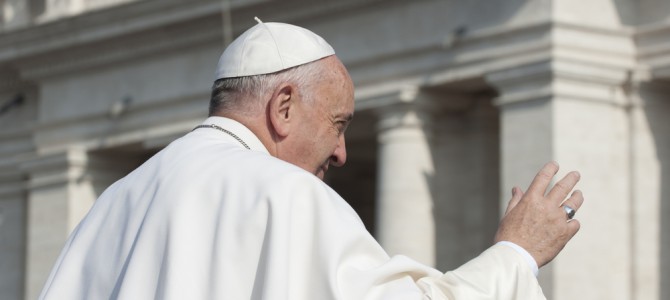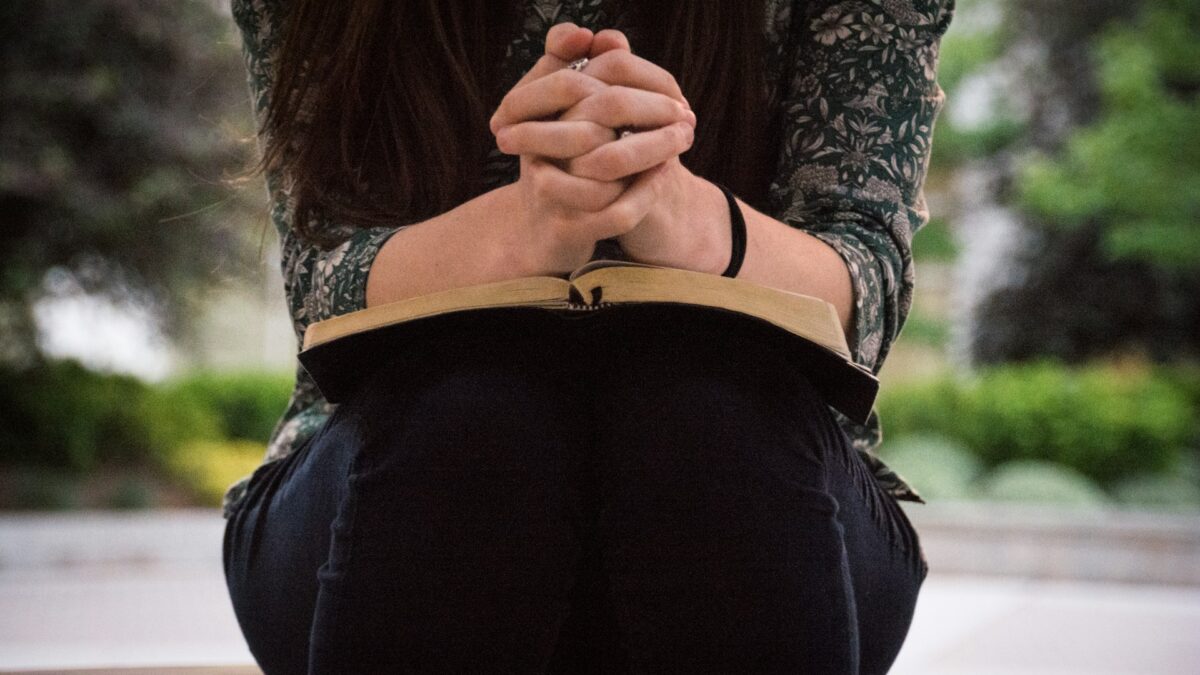
I loved seeing the Holy Mass on CNN. It felt like when the Pirates play on national television and all the bumps and b-rolls are panoramas of downtown Pittsburgh: my everyday, parochial existence displayed beautifully to the rest of the world. How can one not feel a swell of pride, not to mention an affection for the spectacle itself?
Even as I indulged this natural enthusiasm a Catholic feels for a papal visit, a more cynical suspicion loitered in the back of my mind. I couldn’t help but suspect I was witnessing not the beginning of a new era of good feelings between the Catholic Church and secular culture, but the end of an era of rapprochement—a final burst of affection before relations are cut off for good.
This suspicion has been confirmed—or at least buttressed—by the reaction to the revelation that Pope Francis met with and embraced the Abominable Appalachian herself: Rowan County clerk Kim Davis. All the praise secular liberals have showered on the Roman pontiff for his outreach to the marginalized evaporates when he embraces someone secular liberals have gone to great trouble to marginalize.
Secularists Hope to Evangelize the Church
The fact is that much of the positivity toward the Holy See over the past week has been based on a collection of implied but false promises.
There’s no doubt that Francis represents a more politically and theologically liberal faction within the church than Benedict XVI or John Paul II, though the extent of his liberalism remains tantalizingly in doubt. But even if liberal Vatican connivers achieve total victory at the upcoming Synod on the Family, the changes to Catholic practice that would result—admitting divorced and remarried Catholics to the Eucharist after a “penitential period”—would be all but unnoticeable to anyone outside the church. (Their theological importance should not be underestimated, but their immediate culture-war impact would be minimal.) This will hardly satisfy the media and other secular liberals who eagerly but naively interpret Francis’s “openness” and “dialogue” as presaging a full capitulation on sexuality.
Secularism is unabashedly evangelistic; its abhorrence of proselytization is more about hamstringing competition than it is about autonomy or any other platitude. Liberals’ embrace of Francis, as Ross Douthat suggests, does not signify the conversion of secular America as much as it does the expectation that secular America is about to convert Francis, and by extension the last major international institution to have resisted assimilation.
One can understand the stubborn belief that the Catholic Church will capitulate because so many other Christian denominations have succumbed to secularism’s siren song. You could almost hear it in the commentators’ voices: “The Catholics are just behind the times, as always, but they’re catching up!”
Resisting the Secular Borg
The assimilation of mainline Protestant denominations has been unquestionably disastrous. It has all but extinguished their witness of the gospel while gutting their congregations. They are, by and large, no longer anything more than spiritually themed social clubs and lecture series that apply a patina of the eternal to otherwise worldly communities. Their reason for existing—salvation!—now abandoned, these churches will survive only as long as identifying as a Christian has social cachet.
The Catholic Church is far from immune to these forces, but its plodding pace of change and unimaginable bureaucracy make the likelihood of imminent institutional capitulation just about nil. I’d go farther: The Catholic Church cannot and will not permit itself to become merely a social accessory to secularism (even as some priests, bishops, and even cardinals seem intent on pursuing this path). The implied promise of the Francis era can never be fulfilled.
Secularism only subjugates. By definition it permits nothing superior to or on par with itself in a culture or community. This is, in part, why secularism and liberalism, classically understood, make such a dysfunctional couple: In the Trojan Horse of “neutrality,” secularism is welcomed into liberalism, then while we’re asleep they ransack the churches, synagogues, mosques, and temples. The result is a desiccated, uniform, and illiberal public square.
If the Catholic Church insists on a stature—its proper stature—above secular culture, then there can be no peace. What we saw in Washington and New York and Philadelphia will have been, in retrospect, the beginning of the denouement of Catholicism’s entente with secularized America.
The Dark Archons Work Their Magic
For the better part of a century the Catholic Church has burrowed its way into the American mainstream after centuries of mutual suspicion. President Kennedy’s election—which coincided roughly with the Second Vatican Council—marked the end of anti-Catholicism as a substantial force in American politics. But this wasn’t achieved by Americans accommodating themselves to a robust Catholicism; rather it was Kennedy’s neutering of his faith, pledging to subordinate it to his secular duties, that catalyzed the Church’s mainstream credibility.
Once in the American mainstream, Catholics have been expected to act like it. And we have! To an almost incredible degree public polling of American Catholics tracks with the American people as a whole. In a century we’ve gone from Thomas Nast’s American River Ganges to having a Catholic Speaker of the House and a Catholic vice president flank the Roman Pontiff in a joint session of Congress.
But the question remains: Who has converted whom? Joe Biden dances around Catholic doctrine on abortion and marriage like an awkward middle-schooler trying to ditch his date for his real crush. And can you imagine John Boehner citing the catechism for his politics? American Catholicism has become more American than Catholic, so when America changes—say, by enshrining same-sex marriage as a constitutional right (in an opinion written by a Catholic!)—we expect Catholics to get with the program.
It’s Time to Turn Our Heels
There are two possibilities, then. The Catholic Church could follow the Episcopal Church and subordinate itself to secular culture, reap a one-time windfall of liberal goodwill, then splinter and scatter into a Balkanized mess of irrelevant factions. Or it’s time for the Catholic heel-turn.
I’ve never watched professional wrestling, but I’m reliably informed that a “heel turn” is when a likable character (a “face”) suddenly takes on a more confrontational, underhanded, and nasty persona (a “heel”). While I certainly don’t advocate nastiness or underhandedness, faithful American Catholics are going to have to acclimate ourselves to playing the “heel” role in the pageant of American politics and culture. We should, within the bounds of prudence, embrace this role.
Respectability is no longer an option. I’ve seen some Catholics desperately downplay the Francis meeting with Davis, feebly trying to salvage the mainstream respectability Francis has conferred on the American Church. Enough. Sure, the image of the pope and a fuddy-duddy rural functionary is incongruous; I found the idea of the meeting a bit odd myself. But if we’re going to embrace the periphery, as Francis loves to say, then let’s go all the way and embrace the Untouchables as well.
We can’t earn the lasting esteem of secular culture without capitulating to it. If this papal visit really is the beginning of a new closeness between the church and secular liberalism, then it will be short-lived, because the church will not be a meaningful institution long enough to enjoy it. (The church will continue to exist, of course—the gates of hell and all that.) Rather, let’s hope this is the end of an unsuccessful rapprochement and revel in the last pulse of affection, all while preparing ourselves to occupy the social periphery Pope Francis so cherishes.









